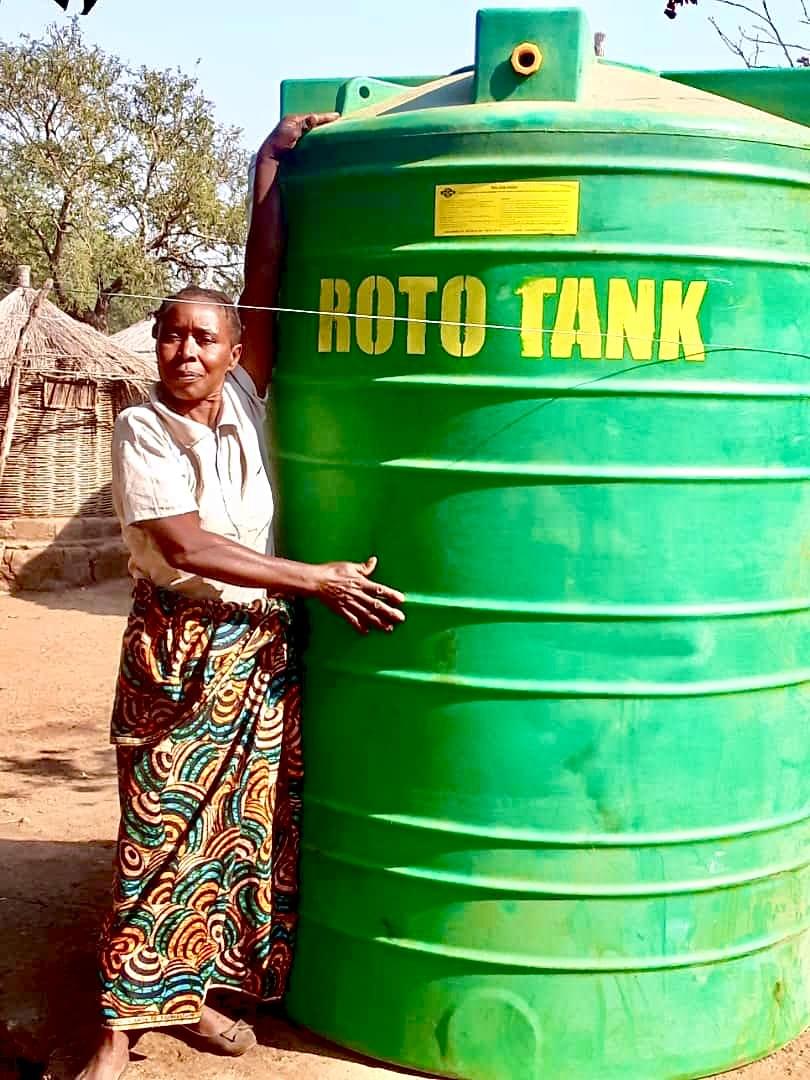Climate change has significantly impacted rainfall in Zambia: the rainy season has become shorter, droughts have become more frequent, and rainfall patterns have become less predictable. In a country where 60% of the population is reliant on agriculture as a source of income, the impact of more dry, extreme, and unpredictable weather conditions in Zambia could be catastrophic, increasing food insecurity and poverty. Since small-scale Zambian farmers traditionally have relied on rainfall to water their crops, they are particularly vulnerable to changing weather patterns. Shorter rainy seasons have forced some farmers to plant varieties of crops that will be able to more quickly mature during the brief few months of rainfall. These varieties may produce lower yields, however, increasing food insecurity and hampering farmers’ ability to gain enough income to provide for themselves and their families.
As human activity continues to drive climate change, these problems will only get worse, and vulnerable communities including Zambian subsistence farmers will continue to bear the brunt of the impacts of carbon emissions mostly released by wealthier countries. In fact, climate change may decrease the availability of water in Zambia by as much as 13% in the next 75 years. Decreased access to water will stunt the productivity of farmland, resulting in higher food insecurity as well as lower, less consistent income for farmers who rely on their output to support their families. WIth a lower income, it is harder for farmers to escape poverty; their children also become less likely to attend school, creating a vicious cycle. Therefore, it is vital to support farmers in accessing the tools needed to achieve climate resilience.

Solar-Powered Climate Resilience
At the Harvest Fund, our mission is to help Zambia’s farmers to thrive. We work with women farmers to help them be able to grow crops in spite of climate change by co-investing in solar-powered irrigation systems. This allows farmers to use groundwater, not rainwater, to irrigate their crops reliably, no matter the season. With this technology, farming cooperatives gain the tools they need to adapt. Since these pumps are powered by solar energy, not diesel, they do not release carbon emissions. Instead, they are a sustainable solution to the climate crisis, making women farmers more resilient to climate change without contributing to its effects.
Irrigation systems are one of a multitude of tools we provide to the farmers we collaborate with. With year-round support and trainings on conservation agriculture, grain storage, and more, we help farming cooperatives to diversify what they grow and harvest. This allows farmers to adapt to changing climate by planting crops that are likely to be successful in different conditions. Through courses on agribusiness management, we help farmers navigate fluctuating markets and determine when the best time is to sell their crops to maximize profits, ensuring their hard work in the field results in a consistent income stream.
A Thriving Future
Although climate change is an unprecedented threat, it is important that we work to find ways to adapt to it rather than losing hope. For Zambian farmers, we at the Harvest Fund work hard to alleviate some of the burdens of drought and erratic rainfall, empowering women to attain climate resilience. With the right support, we can find ways to mitigate the impacts of climate change and allow Zambian women farmers to prosper.
